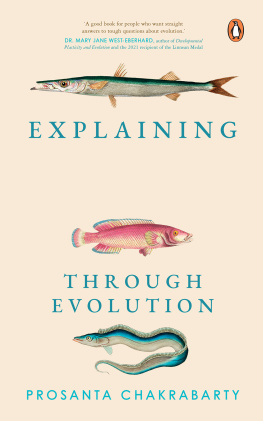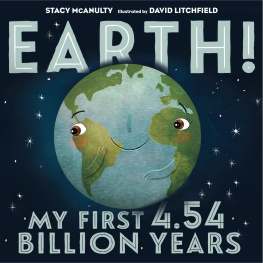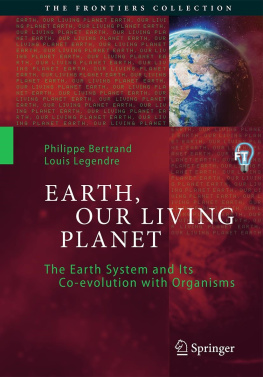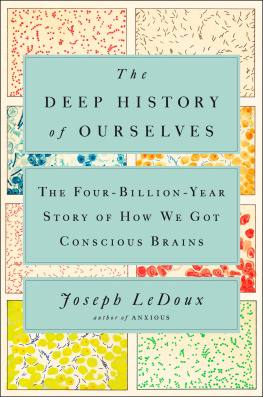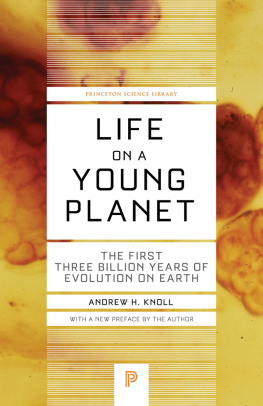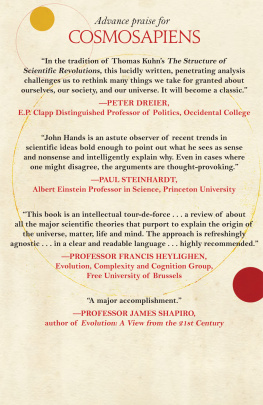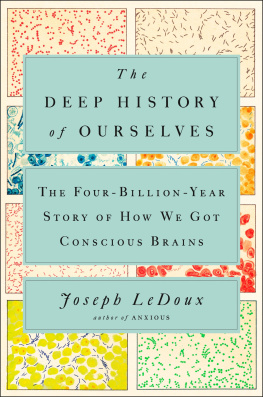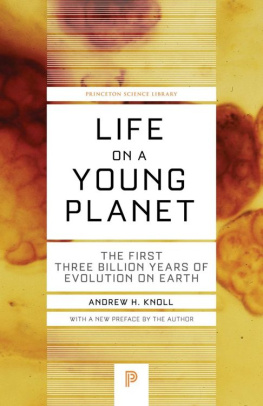Intro to Indian Edition
There is a beautiful Sanskrit word, ayurveda that translates in English to the science of life.1 Although generally relating to human health or homeopathic medicine, Id like to see the shift of the usage of ayurveda to its literal translation as perhaps an enlightened synonym of biology, lan vital or perhaps of evolution. It is a term that makes me think of how words and phrases can have different meanings for different people and how words too can evolve. Even the word evolution evolved in Charles Darwins time from a meaning closer to development (in the sense of a developing embryo) to its current definition, essentially the accumulation of heritable changes in organisms that can lead to the formation of new species from ancestral forms.
Interestingly, Darwin and others instead used the now obsolete word transmutation, which then meant something closer to our current definition of evolution.2 Over time, the meanings of words can change, but previous usages remain part of their history, just like species can retain the historical features of their ancestors. Except in biology, modifications often lead to entirely new species, so perhaps if we changed ayurveda to ayurvedology wed have a better fit with the evolution analogy.
When Premanka Goswami approached me about publishing with Penguin Random House India, I got a bit nervous about the thought of publishing for an Indian audience. Born and raised in North America, I know India as my ancestral homeland, the birthplace of my parents, grandparents, great-grandparents and ancestors back to time immemorial, yet I still view India through the lens of a stranger. I am part of the Indian diaspora, but perhaps the part that sometimes feels adrift, distant and disconnected from the motherland. My name, my facial features, my skin tone, all divulge my Indian heritage to North Americans. But my accent, my mannerisms, my experiences are all AmericanI own that duality, but often fumble the consolidation (e.g., I eat samosas with a fork and barbecue sauce). Throughout this Indian edition you will see a bit of both sides of me, but hopefully my scientific perspectives will translate no matter what flavour of human you are. What does it even mean to be Indian in the biological sense...? Well, read on, we will get to that (see Figure 1). And if you are not Indian, no worries, this is a book about evolution and life, and you dont need to be an ayurvedologist to understand it.
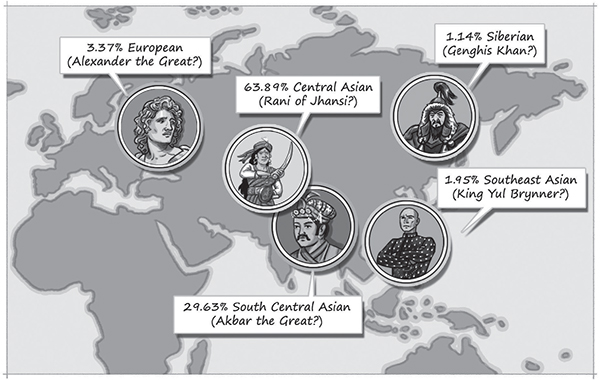
Figure 1: My ancestry test results. The percentages are real (taken with a grain of salt), the historical figures Ive assigned are a fiction of who Id like to be descended from. Yul Brynner is representing his King of Siam character not himself (he pretended to be Swiss/Japanese but had mostly Russian ancestry). Alexander the Great left no direct line (his son was killed before having his own children) and although every Asian thinks they have some Genghis Khan in them, we wont know without some DNA link to his actual descendantswhich we dont have.
PART I
A Personal Prologue
Called to Action
In 2008, the year I moved to the state, the Louisiana Science Education Act was passed with the backing of the then governor, Bobby Jindal. The name of the law is misleading, as it allowed schools in Louisiana to teach the Biblical account of creation in science classes as an alternative to evolution.1 Jindal went as far as to say that local schools should determine how science is taught in classrooms.2 That meant that if the local public schools science teacher wanted to teach that all living land animals were the descendants of creatures carried on Noahs Ark, then well, that was just fine with the governor and the supporters of the law.
At the time, I presumed that Bobby Jindal (born Piyush Jindal) was probably a smart person who was somehow misled. I jokingly called him my uncle Bobby because as an Indian person I could claim all other Indians as kin, and maybe saying the governor was a relative could get me out of a speeding ticket (it couldnt). My Uncle Bobby should have known better than to pass anti-evolution legislation. He was, after all, someone who held a Biology degree from Brown University and a Rhodes Scholar (but going to an Ivy League school and Oxford doesnt necessarily make you smart, just educated). Part of the reason he promoted this law was to pander to the so-called religious right. At the very least, he knew that the law was illegal because of the separation of church and state clauses of the First Amendment of the US Constitution. He did know this, and he ignored it.
So whats the big deal anyway? Well, you just dont teach your own religious views in a public science class. Science is about observing and testing natural phenomena in order to give a reasoned, evidence-based explanations for those events. Religion, on the other hand, can provide answers to questions science doesnt cover (e.g., what is the meaning of life?) but it can also provide answers that cant always be tested. For instance, lets say your answer to why apples drop to the ground when they fall out of a tree is God made it happen; that isnt something I can prove false, because I cant test it. There isnt room for questioning things or scientific inquiry if you believe flatly that God controls everything that happens.
The other problem with teaching religion in a science class is that there are many religions with a variety of beliefs. Faith-based beliefs about creation differ by your religious persuasion. In one version of the Hindu creation myth, the Earth was part of the lotus flower that grew from the navel of Vishnu, and then the world was populated by Brahma and will be destroyed by Shiva.3 If I taught that version of creation as the truth in my science class, I wouldnt last very long as a teacher. However, maybe this religious take would do well in the so-called Indian Science Congress, especially among participants pushing fringe Hindutva ideas that take some religious ideas literally (e.g., Brahma discovered dinosaurs).4
The problem again with the teaching God controls everything is that you cant prove or disprove it. In order to respond to a Noahs flood scenario I say, There is no boat that can fit a pair of all living land animals, and having just a pair of each species wouldnt provide enough genetic variability to restock the Earth; also it cant rain for 40 days and 40 nights worldwide because we have a finite amount of water on Earth; and also all the freshwater animals would go extinct as they would be inundated by salty marine water; and where did all that water go afterwards? And there is no evidence of a huge worldwide flood from a few thousand years ago The reply is just always, God did it, so anything is possible. Well, I guess that would be the end of the conversation. God did it can be your go-to answer, and that is fine. I am not here to judge or tell you how to live. My only issue is using that explanation to shutdown scientific discourse in an academic setting.

